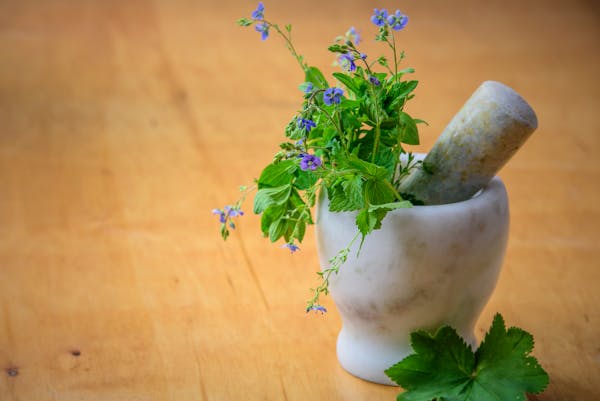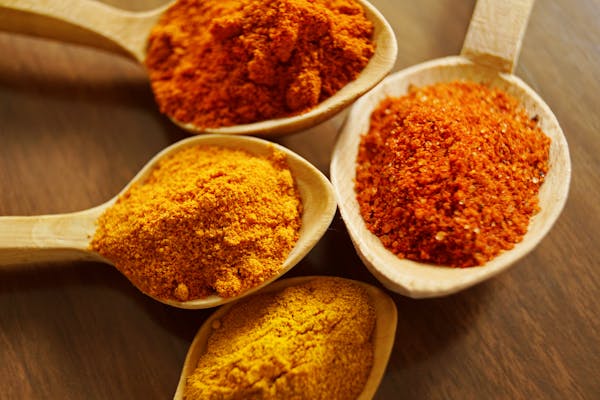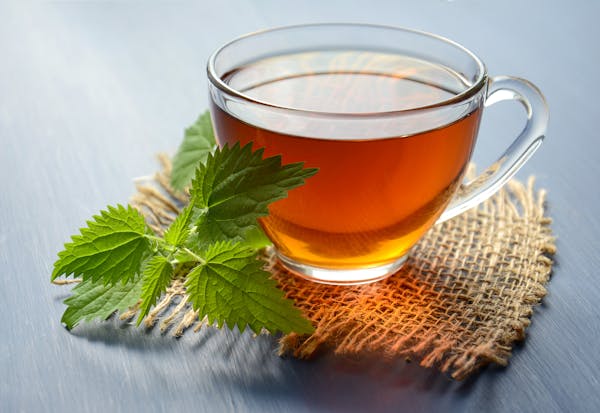Turmeric Health Benefits
Turmeric Health Benefits
Turmeric is an ancient root used for its healing properties for centuries. Turmeric comes from the rhizome (rootstock) of the Curcuma longa plant. To manufacture it, the roots of the plant are boiled, dried and then ground into a powder. Traditionally used in Chinese and Indian folk medicine, turmeric benefits are amazing and able to treat a wide range of illnesses. The powerful anti-inflammatory and antiseptic qualities of turmeric have made it a precious commodity for ages!
Referred to as “Indian saffron” in medieval England, turmeric wasn’t understood or valued for a long time. People used it as natural food dye instead of as the unbelievable healing agent it really is. The many turmeric health benefits are truly incredible!
With a peppery, warm and bitter flavor, the mild fragrance of turmeric resembles orange and ginger, which makes it a national favorite in curry dishes dating back centuries. Today, it’s widely used in yellow mustard and as a natural health supplement.
Next to essential oils, few natural remedies have reached mainstream use like turmeric has these past few years. Interestingly enough, you’d expect that Americans would catch on sooner, considering that we’ve doused our Ball Park franks in yellow mustard since 1904. That was the year R.T. French Co. first started to use turmeric as a preservative and color agent for “creamy salad mustard.”
Top 7 Proven Turmeric Health Benefits
The list of healing powers attributed to turmeric curcumin seems to go on for days. Of the 7,000 studies testing its effectiveness and safety, very few report any side effects whatsoever. Although inherent dangers exist for certain people, the vast majority of research findings center on the turmeric health benefits and its healing properties.
Some health conditions turmeric helps with are:
1. Chronic Inflammation and Pain
The journal Oncogene published the results of a study that evaluated several anti-inflammatory compounds. It found that aspirin (Bayer, etc.) and ibuprofen (Advil, Motrin, etc.) are least potent, while curcumin is among the most potent anti-inflammatory and anti-proliferative agents in the world. (9) This means turmeric not only has great promise with chronic pain, but since it has less side effects, it may provide safe, lasting results!
2. Rheumatoid Arthritis
Due to its high anti-inflammatory properties, turmeric is highly effective at helping people manage rheumatoid arthritis (RA). A recent study out of Japan evaluated its relationship with interleukin (IL)-6, the inflammatory cytokine known to be involved in the RA process, and discovered that curcumin “significantly reduced” these inflammatory markers. This suggests that regular turmeric use could be a potent strategy to prevent the onset of RA from developing to begin with!
3. Depression
Researchers from the Government Medical College (Bhavnagar, Gujarat, India) published the results of the first study this past April to evaluate curcumin’s ability to manage depression in a controlled setting. Taking 60 volunteers diagnosed with major depressive disorder (MDD) and diving the group to determine how patients treated by curcumin compared against fluoxetine (Prozac) and a combination of the two, it discovered that that the principal curcuminoid in turmeric is not only as effective as Prozac in managing depression, it doesn’t carry with it all the dangerous side effects as anti-depressive drugs do. According to the paper, “This study provides first clinical evidence that cur cumin may be used as an effective and safe modality for treatment in patients with MDD.”
4. Diabetes
Turmeric is shown to lower blood glucose levels and reverse insulin resistance. For instance, an article published in Biochemistry and Biophysical Research Communications shared a study out of Auburn University that discovered curcumin suppresses glucose production in the liver. Fascinatingly, researchers proved that it’s actually 400 times more potent than Metformin (a common diabetes drug) in activating AMPK and its downstream target acetyl-CoA carboxylase (ACC). Turmeric acted as an anti-diabetic and antioxidant in diabetes, especially type 1 diabetes , improved metabolic function and reduced the risk of plaque buildup in the arteries of type 2 diabetes patients .
5. Cancer
Recent studies show turmeric is a powerful adversary to cancer. Curcumin shows a marked ability to inhibit cancer cell growth, boost antioxidant levels and the immune system, and kill cancer cells. It seems to work on improving mitochondrial function at a cellular level, and it improves metabolism. Even against drug-resistant strains of leukemia, curcumin caused cell death of cancer cells.
6. Skin and Aging
Turmeric has many healing properties for skin. It’s a natural anti-inflammatory so it reduces redness or other skin irritations. It’s antibacterial, so it’s great for blemishes, acne and skin balance. Turmeric is wonderful at improving the texture of the skin because it is an exfoliant but also rich in antioxidants. It’s a wonderful natural treatment inside and out!
7. Brain Health and Memory
It’s all in your head … literally. This vital organ is the fundamental keeper of everything you’re able to think, act or dream. By taking turmeric, you can improve the oxygen intake of the brain, which helps in all of the brain’s functions and processes. Turmeric is extremely healing for the brain and for increasing memory function. Not surprisingly, when your brain functions at its best, then you increase the uptake of hormones, such as seratonin and melatonin. So, by healing the basic functioning of the brain, you can also heal other mental illnesses.

















No comments:
Post a Comment